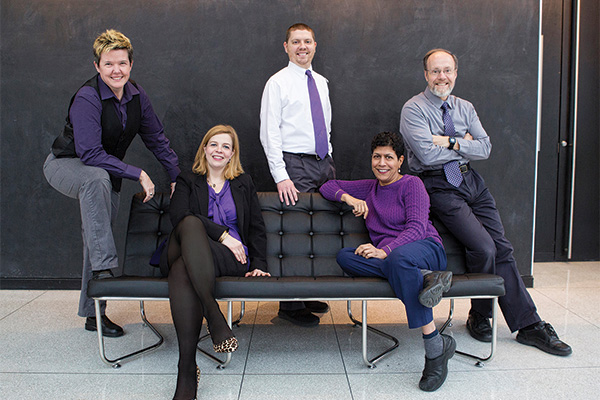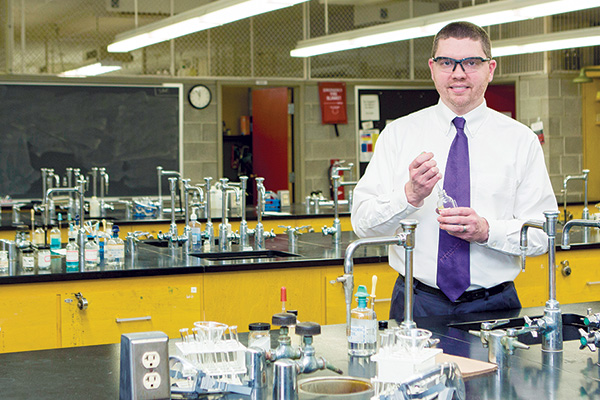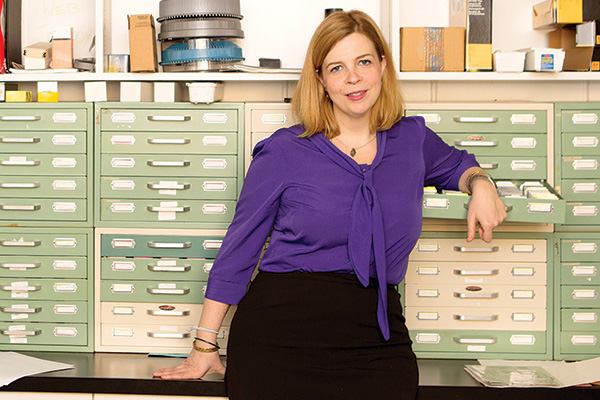How Satisfied Are Cornell’s Students?
When you were a college student, what did you most value about your experience? Do you wonder if today’s college students care about these same things?
As an expert on student satisfaction through my role as associate vice president of retention solutions at Ruffalo Noel Levitz, I work with hundreds of colleges, universities, and community colleges to determine what students like and don’t like about their experiences, using data from the Student Satisfaction Inventory (SSI). The SSI is a nationally standardized survey available from Ruffalo Noel Levitz.
As a 1988 Cornell College graduate and member of the Cornell Alumni Board of Directors, I have had the unique opportunity to review, analyze, and share the findings of the SSI with my alma mater. There is something extra special about applying my professional perspective to the data from the college I love and call home. As you might expect, Cornell is doing a great many things right, but the survey findings also offer Cornell some opportunities to improve, and alumni can play a role.
The SSI asked Cornell students to indicate a level of importance and a level of satisfaction on more than 70 items that reflected the student experience both inside and outside the classroom. The college administered the SSI during the spring of 2015 and had a 24 percent response rate (189 students). Students who responded were generally representative of the overall population.
When the data were analyzed, institutional strengths (items with high importance and high satisfaction) and items of challenge (high importance and low satisfaction) were identified. Using these data, Cornell is celebrating the areas where it is meeting and exceeding student expectations. Using the college’s strategic plan, Cornell is focusing resources in order to improve the priority challenge areas. A new registration system has been implemented, and changes are in process for a new group advising model for first-year students as well as policies for reporting and responding to incidents on campus. Cornell students will be surveyed again in 2016-17, which will help measure the college’s success in improving satisfaction in these areas.
It’s important to provide some context about why student satisfaction is important. National research indicates that there is a statistically significant link between student satisfaction and retention, graduation rates, and alumni giving. Each of these areas matter for the short- and long-term health of the college. Since student satisfaction is linked to all three areas, it is critical for Cornell to collect and share these data. It is also key to actively work to improve the student experience, which will ultimately increase student satisfaction and student success.
“From the controlled intensity of the block plan to the amazing interactions with professors and students that only come from a small liberal arts college setting, Cornell College was an educational experience like no other. My classes, a world-class faculty, and practical internships challenged me and prepared me well for my current work. I am thankful for Cornell College and the impact it has had in my life.”
Jack Lumanog ’96
Archbishop’s Canon and
Chief Operating Officer,
Anglican Church in
North America
Lawrenceville, Georgia
Areas to celebrate
Cornell is celebrating the areas where students have high levels of satisfaction in items that are important to them. These items of strength provide opportunities for positive feedback on campus, for key messages in recruitment materials, and for ways to increase alumni awareness.
Cornell can take pride in these items of high satisfaction and high importance related to the academic experience:
- The content of courses within my major is valuable.
- The instruction in my major field is excellent.
- Nearly all faculty are knowledgeable in their fields.
- The quality of instruction in most of my classes is excellent.
- The block plan allows me to be immersed in my topics of study.
- Faculty are usually available after class and during office hours.
These advising-related items are also considered strengths:
- My academic advisor is knowledgeable about requirements in my major.
- My academic advisor is approachable.
- My academic advisor is concerned about my success as an individual.
One item related to access to classes was defined as a strength:
- I consistently have been able to enroll in courses that met my
academic goals.
These four items of strength reflect the overall feeling students have about their Cornell experience:
- I am able to experience intellectual growth here.
- I am gaining the knowledge and skills needed to succeed in college and later life.
- I am appropriately challenged by the academic program offered by Cornell.
- There is a commitment to academic excellence on this campus.Many of these items ring true for me when I reflect on my own experience at Cornell in the mid-1980s and it is reassuring to know that current Cornell students still value these academically-oriented aspects of the college experience.
The Cornell results also reflect nice increases in student satisfaction in key areas—the Thomas Commons, food service, and residence halls—where the college has made improvements in recent years based on survey data from the previous SSI administered in 2012.
“Cornell College’s block plan prepared me for my career as a network engineer. The roles I’ve held have always been in a fast-paced environment where juggling multiple projects under tight deadlines and appeasing demanding customers has been a constant. To be successful in my line of work, some essential skills are time management, organization, sense of urgency, and focus. I really began to develop these skills while studying on the block plan.”
Sheree Sweeney Suarez ’95
Telecommunications engineering consultant
Chicago
Priority for improvement–and how alumni can help
The top-identified challenge for Cornell students (and for many students across the country) was “Tuition paid is a worthwhile investment.” This item speaks to the value of the college education, and it is not surprising that it is considered a priority for improvement. Stories about rising tuition, especially at four-year private institutions, and reports on students’ difficulties with establishing a career after graduation, along with rising student debt levels, are all hot topics in the media. Students and their families may be bombarded with these messages on a regular basis and it is up to the college to help balance these messages with success stories of the impact of a Cornell education.
Those of us who have been out of school for a while understand that the return on the investment in our education can only be calculated at some distance from the day we graduated. Another key to consider in the ROI is the non-monetary value of that education.
What can alumni do? Here are some suggestions on ways you can help to improve current student perceptions of Cornell tuition as a worthwhile investment:
- Meet with students on the Hilltop: You can attend departmental gatherings to connect with students or initiate conversations with student ambassadors during Homecoming. Share your professional journey and provide the students with ideas on ways they can use their majors to get started in the work-world. Let the college know you’re interested in these activities by going to my.cornellcollege.edu/volunteerinterest
- Participate in regional events to connect with young alumni, current students, and their families. Be open to talking about your journey and the value you have received from a Cornell education.
- Be active on Cornell’s social media sites and share your story in the Cornell Report. Post updates on the Cornell Facebook page, Twitter, and Instagram with the hashtag #ThisIsMyCornell. Keep the college and other Cornellians informed on what you are doing professionally by providing brief updates on my.cornellcollege.edu. In this way you can establish yourself as a potential resource to students.
- Establish internships and mentoring relationships. Paying it forward is an important philosophy for Cornellians, and you can do that by establishing internship opportunities or by being willing to be a professional mentor to a current Cornell student. Contact the Career and Civic Engagement Center to learn more about how you can help.
- Give back to the institution with your time and your resources. It is important for Cornell alumni to intentionally give back to the college in whatever way possible, with your time, your talent, and your dollars. When we give back, the college lives on: enrolling students, educating individuals, building relationships, and benefiting future generations.I have been inspired by the stories I have heard from my fellow alumni over the years, and I know I would have welcomed hearing their stories when I was a student. Having a clearer picture of what the future may bring with a Cornell education may increase student satisfaction with the current experience, keeping students enrolled and successfully graduating. We can spread the good news on the Cornell experience, past, present, and future.
Want to help?
Go to my.cornellcollege.edu/volunteerinterest
 Julie Bryant ’88 is associate vice president for retention solutions at Ruffalo Noel Levitz, working directly with colleges and universities throughout North America in the area of satisfaction assessment. She oversees the national reporting and trend analysis of these data, has authored white papers on student satisfaction, and regularly makes presentations at national conferences and webinars.
Julie Bryant ’88 is associate vice president for retention solutions at Ruffalo Noel Levitz, working directly with colleges and universities throughout North America in the area of satisfaction assessment. She oversees the national reporting and trend analysis of these data, has authored white papers on student satisfaction, and regularly makes presentations at national conferences and webinars.





